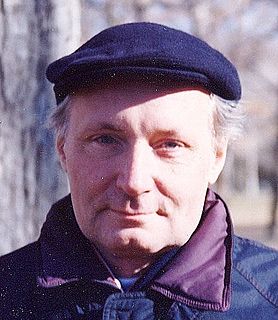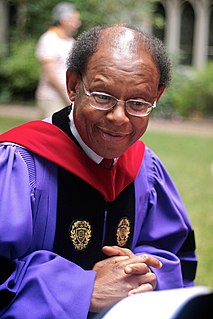A Quote by Eugen Drewermann
We see in the 20th Century an unfortunate trench warfare, in which psychoanalysis, in a struggle against the internalized compulsion and superstition of a particular doctrine, has expressed itself atheistically. By contrast, theology is not merely under suspicion of talking soullessly about God. Both theology and psychology, in striving for human health, need one another like the right and the left hand.
Related Quotes
Some fundamentalists go so far as to reject psychology as a disciplined study, which is unfortunate and polarizing. By definition, psychology is the study of the soul, theology is the study of God. Generally speaking, systematic theology is a study of all the essential doctrines of faith, and that would include the study of our souls (psychology).
"Biblical theology" refers to something more precise than theology that is faithful to the Bible. It might be helpful to draw a contrast: at the risk of oversimplification, systematic theology tends to organize theology topically and with an eye cast on its contemporary relevance, while biblical theology tends to organize the same biblical material so that it is easier to see the distinctive contribution of each biblical book and human author, and to trace the trajectories of themes across the Bible so we see how the books of the Bible hold together.
Systematic theology will ask questions like "What are the attributes of God? What is sin? What does the cross achieve?" Biblical theology tends to ask questions such as "What is the theology of the prophecy of Isaiah? What do we learn from John's Gospel? How does the theme of the temple work itself out across the entire Bible?" Both approaches are legitimate; both are important. They are mutually complementary.
The ultimate goal of theology isn't knowledge, but worship. If our learning and knowledge of God do not lead to the joyful praise of God, we have failed. We learn only that we might laud, which is to say that theology without doxology is idolatry. The only theology worth studying is a theology that can be sung!
The scientific doctrine of progress is destined to replace not only the myth of progress, but all other myths of human earthly destiny. It will inevitably become one of the cornerstones of man's theology, or whatever may be the future substitute for theology, and the most important external support for human ethics.
I do not believe that God intended the study of theology to be dry and boring. Theology is the study of God and all his works! Theology is meant to be LIVED and PRAYED and SUNG! All of the great doctrinal writings of the Bible (such as Paul's epistle to the Romans) are full of praise to God and personal application to life.
Theology is a non-subject. I'm not saying that professors of theology are non-professors. They do interesting things, like study biblical history, biblical literature. But theology, the study of gods, the study of what gods do, presupposes that gods exist. The only kind of theology that I take account of are those theological arguments that actually argue for the existence of God.
The object is evident in the name of the discipline. Similarly, theology (theologia) is the study of God. The object of theology is not the church's teaching or the experience of pious souls. It is not a subset of ethics, religious studies, cultural anthropology, or psychology. God is the object of this discipline.
There are three things we have to let go of. The first is the compulsion to be successful. Second, is the compulsion to be right-especially theologically right. (That's merely an ego trip, and because of this "need" churches split in half, with both parties prisoners of their own egos.) Finally, there is the compulsion to be powerful, to have everything under control.
[Christian rebellion] arises from the doctrine of mankind made in the image of God, and therefore protests against all forms of dehumanization. It sets itself against the social injustices which insult God the Creator, seeks to protect human beings from oppression and longs to liberate them… it protests against every authoritarian regime, whether of the left or of the right, which discriminates against minorities, denies people their civil rights, forbids the free expression of opinions or imprisons people for their views alone.
You see, my Lord Archbishop, what is "dubious" about my theology is not that it contradicts particular doctrinal teachings, things are much worse or better: what I want, is no more and no less than a fundamental change in the whole way that theology is done today; but I want this out of faith, not out of faithlessness.
There is however difference between the theology of liberation and traditional theology, the latter being based primarily On the Word of God made incarnate in the Holy Scripture Liberation theology is of course also inspired by the Word, but its representatives are convinced that God also speaks to us in everyday events and that, for example, information obtained through the mass media can be a special way in which God speaks to us.




































